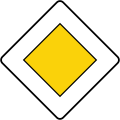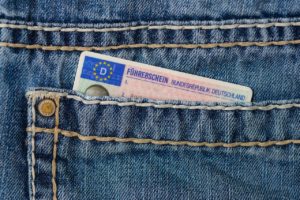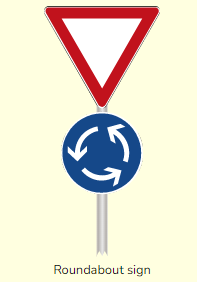Every county has their own way of doing things, and your first couple of months living in a new country will be a steep learning curve. Here are some of the differences between South Africa and Germany as well as some basic info we would classify into “I wish someone told me that!”
Disclaimer
Most of the information were translated from German, and although we do our upmost to provide correct and up to date information, you are still responsible for your own legal clarifications. No liability accepted.
Driving
Here are some basic differences in road rules
| South Africa | Germany |
| Driving on the left-hand side | Driving on the right-hand side. Right before left rule |
| Speed limits | The general speed limit (Tempolimit) on highways (autobahn) is 130 km/h. On most highways, the speed limit is dynamically controlled depending on the traffic conditions. It can also be unlimited. |
| Pass vehicles on the right and left | No passing on the right. It is illegal to pass a vehicle on the right. You must move into a left lane in order to pass. The pass-on-the-left-only rule is one of the things that make the autobahn work. |
| Traffic circles yield to the right | Traffic circles (Kreis) yield to the left, and a vehicle already in the circle has right of way. You only use your turn signals when you leave the circle, and not when entering. When there is no sign to indicate it is a traffic circle, you handle it like a normal intersection and the right-before-left rule applies
|
| Main roads have priority and side streets must yield | Side roads, unless you have a right of way sign on the main road, have right of way from the right. |
| A fuel pump attendant fills up your vehicle at the Petrol station | You have to fill up your vehicle yourself. Remember to note the pump number when paying. Always ask for a receipt when paying by cash. |
| When denting another vehicle in a parking lot, you can leave a note for the person to contact you | Hit-and-run (Fahrerflucht) is a very serious offence. A hit-and-run occurs when a person involved in the accident moves away from the scene of the accident, If you damage another vehicle in the parking lot, you must wait for the person to return before you can leave, or else it is seen as a hit-and-run. See Division 7 Section 142 of the StGB – Leaving the scene of an accident. If the owner of the vehicle does not return after a reasonable period, report the incident to the police. |
- It is illegal to run out of fuel on the Autobahn
- According to paragraph 23 paragraph 1a of the Road Traffic Act (StVO), Anyone who drives a vehicle may only use an electronic device that serves or is intended to serve communication, information or organization if 1. the device is not picked up or held for this purpose and 2. either a) only one voice control and read-aloud function is used or b) in order to operate and use the device, only a brief look at the device, taking in consideration the road, traffic, visibility and weather conditions, while simultaneously looking away from the traffic situation, takes place or is necessary. The ban applies to all electronic devices used for communication, information or organization and includes navigation devices. You are allowed to follow navigation instructions but not manually enter your destination address while driving. The law also applies to bicycles. More detailed info on ADAC and Bussgeldkatalog
- There are no precise regulations in Germany or in most European countries as to which shoes are permitted and which are forbidden when driving. Nevertheless: From a liability and insurance perspective, driving with open, loose-fitting, high-heeled shoes can be problematic. More info on ADAC
- You are not permitted to wash your car at home. This is to protect the underground water.

Road Rules
Driving on German roads is very well regulated and if you don’t adhere to the rules you will get penalty points against your name

Driving and Driver’s licences
If you are only visiting, you need an International driver permit which you can apply for at the AA in South Africa If you stay
Shopping
| South Africa | Germany |
| Shopping on Sunday | Shops are closed on Sundays. There are special Sunday Shopping days in certain cities and towns. Shops at Petrol stations, Trains stations and Airports are open |
| Someone bags your grocery shopping | You have to bring your own shopping bags and pack your own items at lightning speed |
| Clothing and shoe sizes according to the UK sizes | Clothing and shoe sizes according to EU sizes. Children’s clothing sizes are according to their length |
| Fresh produce is available irrespective of whether they are in season | Fresh produce is very seasonal. Out-of-season items are very expensive when available |
| Salespeople mostly have no clue about the products in the shops | Salespeople are very well-informed and can give professional assistance |

Shopping
Shopping in Germany can be a daunting experience if you are not familiar with how things work here. The worst is probably grocery shopping. In South Africa there is usually someone at the till that bags your groceries for you. It is mostly a relaxed experience and you can even pay some of your utility bills at the till. In Germany, there are no grocery packers and the workers at the till are extremely fast and efficient. So much that you do not even have time to pack in your own groceries. And
Dining out
| South Africa | Germany |
| Waiting to be seated | You can choose a table and sit down, without being shown where to sit. It is quite common, especially in beer gardens, to share a table with other patrons. |
| Tip usually 10% | Round off to the nearest 5 |
| Paying for everyone or splitting the bill | Everyone pays for themselves unless you are “invited/eingeladen”, then the host normally pays. The waiter will ask “Getrennt (Split bill) oder zusammen (one bill)” Be very careful to use the words “ich lade dich ein” if you want to invite someone to join you in a restaurant, it implies you are paying for the meal. |
| Dogs | Dogs are welcomed in most restaurants, and will even get a water bowl. Best to find out beforehand if your dogs will be permitted inside. |
Schools
| South Africa | Germany |
| Academic year is from Jan to Dec | Academic year is from September to August |

School Information
The German School system is quite unique and distinguishes itself from the South African models in a number of ways Types of schools There are different types of schools to choose from in Germany. The main system is Public schooling, but if There are different types of schools to choose from in Germany. The German public school system is renowned for its comprehensive approach to education. Students from all backgrounds have access to free education. Other options are: Montessori Waldorf schools, based on Rudolf Steiner’s anthroposophical human studies. They are state-approved or state recognised independent schools. Jenaplan-Schulen The Catholic church also
House and home
For more information visit our Beds, mattresses and Duvets page
| South Africa | Germany |
| Pillow Size 45×70 cm | Square 80 x 80 cm pillows |
| Double bed mattress | Two single mattresses on the bed |
| Double bed duvet | Two Single duvets |
Pets
| South Africa | Germany |
| No dog tax | You have to pay taxes on your dogs. The Hundesteuer is between e120 and €180 per dog per year |
| No dogs in restaurants | Dogs are allowed in some restaurants |

Pets
Dangerous (Banned) Dogs Some dog breeds are banned in Germany. There are additional rules for individual states. Up-to-date information can be found on the Zoll (Customs) website.Some dangerous dog breeds are allowed, depending on the Federal state, and must be registered at the Ordnungsamt. Qualzuchten (Torture Breeds) Section 11b of the German Animal Welfare Act [1] prohibits breeding animals with characteristics that cause them to suffer – but so far there are no guidelines on how these should be defined. For this reason, torture breeding is still widespread. Examples are English Bulldogs, “Teacup dogs”, Sphinx cats A list of
General
Here are some interesting laws, rules and exceptions that you need to know about.
- When speaking to a police officer you must always do so in the first person (per Sie), you can get fined (or go to prison) when you use the 2nd person (per du). It can be seen as an insult
- You are not allowed to use certain swear words towards a police officer, or other people, also not on the road. You can get heavy fines or time in prison for giving insults on the road. Showing someone the middle finger also falls under this law. See Division 14 (Insults) Section 185 of the StGB (German Criminal Code) – “The penalty for insult is imprisonment for a term not exceeding one year or a fine and, if the insult is committed publicly, in a meeting, by disseminating content (section 11 (3)) or by means of an assault, imprisonment for a term not exceeding two years or a fine.”
- Don’t drink and then ride on your bicycle. You are not allowed to drive anything under the influence of alcohol. More info on ADAC
- It is forbidden to keep urns with ashes of a deceased person at home. Funeral laws (BestattG) are regulated by the individual federal states.
- You can drink beer and wine from the age of 16 without a legal guardian or parent present. With a parent or legal guardian present, 14-year-olds can also drink wine or beer (<1.2% alcohol)
- You cannot be fined for consuming too much alcohol, but you are not allowed to drive while intoxicated
- Quiet times – there are laws to keep the noise levels to a minimum on Sundays and between 22:00 and 06:00 on a weekday
- Pillows are classified as passive weapons (Schutzwaffe), which are actually equipment that are intended to protect the wearer against the use of weapons. A bit of useless information 🙂
- It is prohibited to make a Nazi salute or wear a swastika. Avoid making inappropriate jokes about history
- It is illegal to carry certain knives, it is a complicated law so acquaint yourself with it if you need to carry a knife for whatever purpose.
- The laws for carrying and handling weapons are very strict and detailed. Information about the weapons act (WaffG) can be found on the Gesetze-im-Internet website. It is also illegal to carry fake guns.
Related content

Downloading Music, Movies etc
Copyrights in Germany are governed by GEMA, a government-mandated collecting society and performance rights organization. GEMA: The Gesellschaft für musikalische Aufführungs- und mechanische Vervielfältigungsrechte, or

Funerals
The last thing you might want to think of while settling into your new home is funeral planning.But this is something you will need to

German laws and regulations
Disclaimer The information provided on this website is for general informational purposes only and is not intended to constitute legal advice. You should consult a




You must be logged in to post a comment.